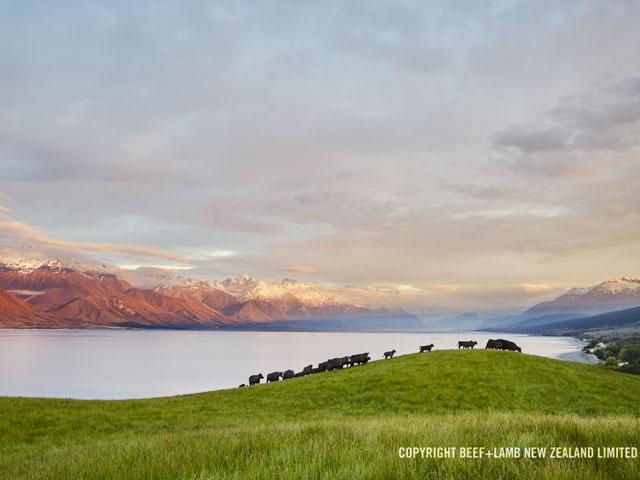New Niche in Beef
Climate-Neutral Beef Tests Consumer Waters
Beef considered "low emission" and "climate-neutral" is gaining traction in some key foreign markets and even finding its way to U.S. shelves.
In its Global Beef Quarterly report for the second quarter of 2022, RaboResearch analysts take notice of this trend. They report some companies are now taking the next key steps to establish supply chains and verification programs to help meet commitments for climate-neutral beef and sustainability.
The timing probably couldn't be much worse, though, when it comes to building market share for a new beef niche.
"It's not an easy time to translate sustainability and emission commitment into action," wrote the group's Global Animal Protein Sector team, led by Australia's Angus Gidley-Baird.
The group's new report states that: "Consumers around the world are paying more for beef now than at any previous time in history. In our view, the full cost of production (sustainability initiatives aside) is not currently being passed on to consumers. Consumers' willingness and ability to pay is likely to be tested in 2022, as inflation levels climb around the world."
AUSTRALIA, NEW ZEALAND SETTING THE PACE
P[L1] D[0x0] M[300x250] OOP[F] ADUNIT[] T[]
Justin Sherrard, Rabobank Global Sector Strategist for Animal Protein, spoke with DTN regarding the new report. He said that while this attempt at a marketing shift is taking place across the world, it's growth and success are contingent on the availability of suppliers, as well as getting measurement and certification systems in place.
"We should not be surprised if, in a short period of time, many of these product lines start appearing," Sherrard said when asked about the U.S. market. He added that development of these carbon-neutral products is more advanced in Australia and New Zealand because beef supply chains in both of those countries were first movers to engage the opportunities and threats associated with reducing greenhouse gas (GHG) emissions.
INFLATION A KEY FACTOR
Sherrard believes retailers are cautious right now about pushing prices in today's inflationary environment, leaving others in the supply chain to accommodate the added cost of sustainability measures.
"But not all climate-neutral beef products will be marketed as premium products," he added. "And there will be multiple ways for the additional costs associated with these products to be covered."
Ways the Rabobank team believe increased costs could be offset include: (1) an increased access to markets; (2) more access to financing; (3) improved productivity; (4) higher premium prices; and (5) new revenue streams such as carbon credits.
Asked if inflation will curb consumer interest in paying for a product produced in a carbon-neutral manner, Sherrard said that remains a key question.
"Will that consumer be willing to pay more to accommodate more costs? Traditionally, in weaker economic conditions and with rising costs, consumers trend towards lower priced or better value items," said Sherrard. "Many surveys do show consumers are interested in purchasing sustainable products, but when those same consumers are in a situation with rising costs, is that interest still there? While there will remain sections of the market that seek out and can afford premium placed goods, for widespread change, these products need to be consumed by a mass market. For that to happen, we have to be aware of cost sensitivity."
SHARING THE COST
Asked who will ultimately pay for producing into a more expensive niche market, Sherrard said there will have to be a balance throughout the supply chain.
"The production end of the supply chain are the large emitters, but the other stakeholders in the supply chain have commitments to reduce emissions; many of these include emissions generated at the production end. So, there is interest by all stakeholders to reduce emissions. It's incumbent upon them to share the costs, and the rewards.
"This is important," he concluded, "because if all the costs and risks fall on producers, progress toward sustainability will be quite slow. The pace is going to be dictated by how effectively the limited premium payments are passed back upstream to producers."
Victoria Myers can be reached at vicki.myers@dtn.com
Follow her on Twitter @myersPF
(c) Copyright 2022 DTN, LLC. All rights reserved.






